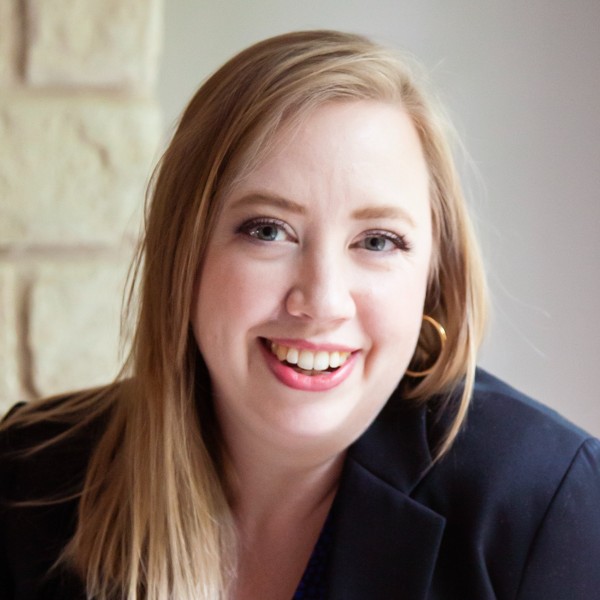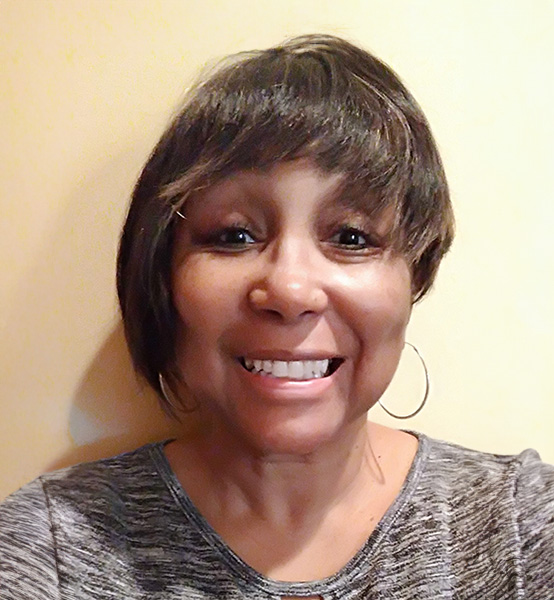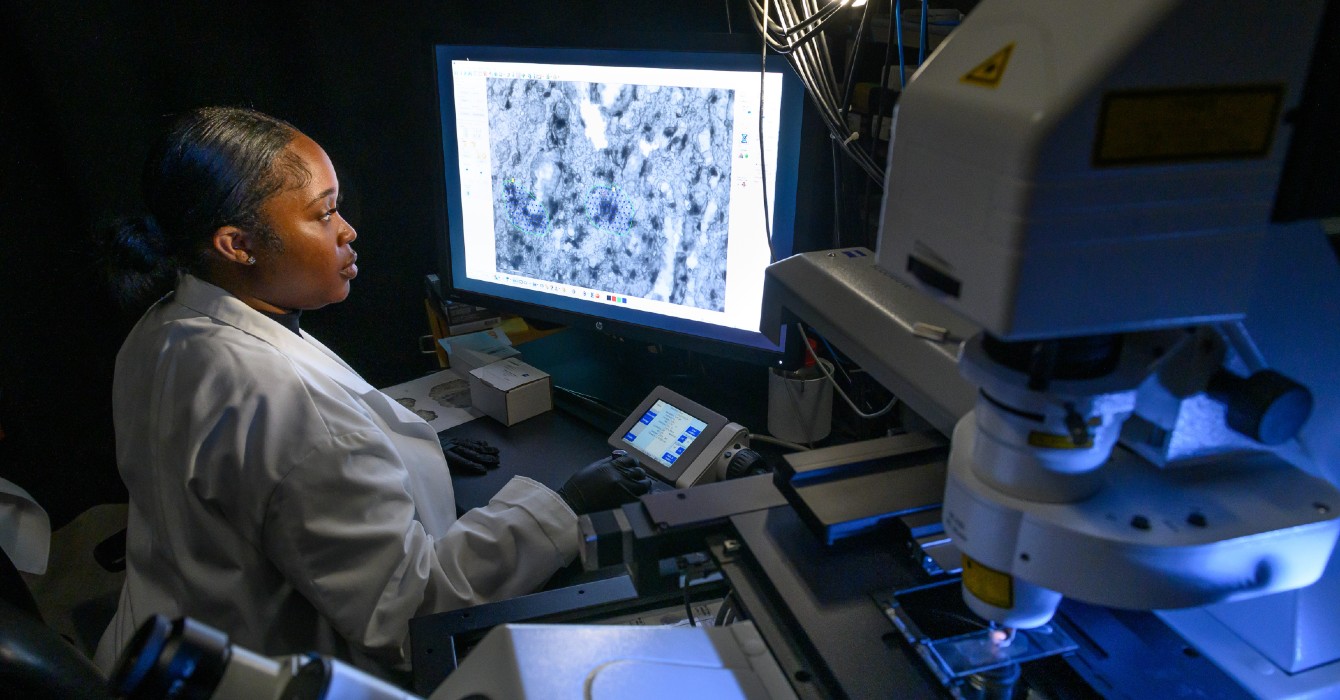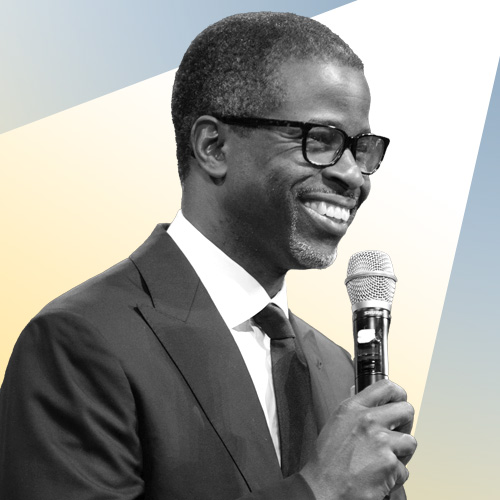Update:The Rev. Wayne Weathers is now pastor of Vision of Hope Baptist Church in Philadelphia.
The Rev. Wayne Weathers began struggling with depression in 2002, after a congregant in the church where he was the pastor shot and killed a family member who also was a member of the congregation.
But the stigma against seeing a therapist prevented Weathers from getting the help he needed for five years -- and even then, he kept it a secret.
 After eventually sharing his experience with his family and his congregation, Weathers decided he wanted to tell his story to a larger audience so that other pastors might be encouraged to get the help they need.
After eventually sharing his experience with his family and his congregation, Weathers decided he wanted to tell his story to a larger audience so that other pastors might be encouraged to get the help they need.
“It has allowed me to be a better husband, a better father and a better pastor,” Weathers said. “An individual should not feel any shame because he or she needs a therapist.”
Weathers is the pastor of Miller Memorial Baptist Church in Philadelphia. He has an undergraduate degree from Virginia State University and a master of divinity degree from Duke Divinity School. He earned a doctor of ministry at Lutheran Theological Seminary, where he focused on urban ministry.
Weathers spoke with Faith & Leadership about his own experience with depression and his desire to help other pastors struggling with mental health issues. The following is an edited transcript.
Q: Why is it important to you to share your story?
What I want people to understand is if you have to see a therapist, there’s nothing wrong with that. It doesn’t mean that you’re crazy. It doesn’t mean that you’re sick. It just means that you need help.
In the faith community, especially the Christian faith community, we must embrace those who are in need of a therapist. My testimony is, it’s a blessing.
It has allowed me to be a better husband, a better father and a better pastor. I have not experienced this much peace in a long time. An individual should not feel any shame because he or she needs a therapist and has sought one in order to get whatever additional help they need.
Q: What changed your mind about therapy?
In my faith community growing up, we were always taught to pray your way through. Anything that came upon you in your life, you constantly submit it to prayer.
Going to a therapist was taboo -- like a bad word -- something that you didn’t do.
Q: Tell me about your experience.
The depression started for me when I was pastoring a congregation in Durham, N.C. One of the church members got in an argument with a family member, and the person pulled out a gun and shot the individual, who died about 18 days later. Both of them were members of my church.
There was a deep sense of grief on my part. As a pastor, you are thinking you are the shepherd of the congregation, you’re responsible for everyone. So there was a deep sense of depression that hit me. The depression happened in stages because of the challenges I was encountering, but it intensified after the shooting and the death of my church member.
My congregant passed away from gun violence. I cared about the individual who pulled the trigger as well. Then you have to navigate the pain of the congregation, and you have to minister to the family.
At that point I had no outlet, no one to talk to, nobody who could understand the deep-seated pain and depression that I was going through.
I had been taught that you just pray your way through to get yourself through. But I’ll be very candid with you -- I needed something more than just spiritual care. I needed mental care.
Q: Why didn’t you get help at that time?
It took me five years to get counseling, for a number of reasons: the evangelical model had taught me to pray my way through the depression and that God would take care of the rest; I was in denial that I needed a therapist; I was afraid of the stigma, that getting a therapist meant I was crazy; I was embarrassed because I thought this meant that I lacked faith in God and that I was not living up to the image of being a strong leader for the congregation that I was called to serve.
As a pastor, we sometimes have a fictitious image that we’re supposed to be Superman. We’re not supposed to show any pain. We’re not supposed to cry. We’re not supposed to hurt.
There’s a danger of falling into that image, because we don’t take care of our physical care, our mental care and our spiritual care.
I thought that a person of faith should not be going that [therapy] route, because if you have faith in Christ, then that’s all you need. I later found out that model doesn’t work.
Q: Did you realize that when you moved to Philadelphia?
I was still battling with the depression. That was a hidden secret from the congregation.
I was at a church business meeting and a member asked me one simple question, and I blew a gasket -- I got upset with the person and yelled over something very trivial.
After that incident happened, I started to examine myself -- to say, “How did you get to this point? Your member just asked you a simple question -- the meeting was not contentious; there weren’t any major problems going on -- what happened that caused you just to explode?”
That was the turning point. The depression came on three and four times more than it ever did before, and it was at that point that I knew I needed to get help to navigate through this depression.
Q: What’s your congregation in Philadelphia like?
The congregation is about 250 members active, 400 on the roll. The best way to describe the community where I pastor is this: there was a sitcom on TV called “Good Times.” When the show first came on, you saw the Cabrini Green projects. Well, think of the beginning of “Good Times,” the Cabrini Green projects, and think of a church in front of that tall, high-rise public housing. That’s the type of community in which I pastor.
It has the second-highest HIV infection rate in Philadelphia, second-highest heroin addiction rate in Philadelphia. It’s an economically challenged community, and it’s also a community that deals with high unemployment and violence.
Recently, while we were having our morning worship service, there was a shootout between two individuals right next to our church. By the grace of God, no one was injured and no bullets came through our church windows.
Q: When you decided to get help, what action did you take?
My wife works at the University of Pennsylvania. Actually, she works in the area of psychology. So her boss, who had a background in psychology, advised me.
I came across a counselor, and I got the best of both worlds. Not only was he a psychotherapist, but he also was an African-American pastor. So the blessing of my therapist was that I got the therapy that was needed for the mental health issues, but I also got a pastor in the process.
Q: What was the difference between therapy and pastoral care for you?
First, the psychotherapist was able to identify things that I was doing that traced all the way back to my childhood.
So the difference with the psychotherapist compared to a pastor is that this person not only was able to identify the behavior but also was trained to get to the root of the behavior.
The other thing that the therapist was able to do was to put something in place so that I would be able to identify when my emotions start to emerge, like when I’m getting angry.
I use little buzzwords, pick up a piece of paper, start writing notes to myself, some mental notes to calm myself down. For me it is biblical Scriptures or writing encouraging notes to myself.
Those are some of the things that the therapist was able to do that a pastoral counselor couldn’t do.
Q: Did you ever take antidepressants or other medications, or did you consider it?
I have not taken antidepressants or other medications for my depression. At this point, I have not considered it, because the therapy has really helped me with my depression.
Q: At first you kept the treatment a secret, right?
I didn’t tell my mother until after a year that I was in therapy. I even tried to keep it from my kids.
I have three kids, two girls and a boy, and one day I went to the therapist’s office and needed to take them with me. I didn’t tell them it was a therapist; I said, “Daddy has to go to the doctor.”
So after they’d spent an hour in the waiting room, I came out and my son looked at me and said, “This ain’t no doctor’s office. This is a therapist. What do you need a therapist for?”
Q: How did your son know this?
He looked at some brochures that were on the table. That was very naive on my part. I’m thinking, “They can’t figure out this is a therapist’s office,” because it looked like a doctor’s office.
But kids being inquisitive, they put the pieces together.
Q: Were they OK with it?
Yes. I didn’t go into detail, but I had to explain to them why I was going.
And they see the difference now. They don’t see me come home as stressed out as I used to, unpacking some of my emotions on them, like getting angry because somebody dropped a piece of paper on the floor and didn’t pick it up, or they didn’t clean their rooms.
Q: When did you share this with your congregation?
I was admitted to the hospital last year. That was my third trip in seven years -- I had some health issues, irregular heartbeat.
After I came out of the hospital, I finally shared with the congregation some of the things that I was keeping in, and the biggest secret that I was keeping was that I was seeing a therapist.
I was in a joint board meeting, and I was sharing with them that I was partnering with a therapist in the community. We are ministering to people in the community who are affected by gun violence or trauma.
I said, “The therapist that I partner with, I’m proud to say, is my therapist.”
After the meeting was over, one of my leaders pulled me to the side and said, “I’m real proud of the fact that you were bold enough to admit that you have a therapist, because it shows that you’re not ashamed to admit it.”
My mouth dropped, and I was like, “Wow, I didn’t know the impact.”
Q: How did you tell your congregation?
At a church business meeting. In a Baptist church, on a quarterly basis the officers and the pastor meet with the congregation.
Q: And what was the immediate response from the members?
It was welcomed, and that was a shock. It was welcomed. They really appreciated the fact of me sharing that information, and they were very supportive.
Q: Were you afraid of what the response might be?
My concern was, would this undermine my credibility as a strong leader within the congregation? In actuality, it did not.
Q: Do you feel that you faced any different or more difficult issues as an African-American pastor?
This is a hard question to answer. The history of the African-American pastor is that he or she is a leader, and a prophetic voice in the community. As a result, there are models that have been constructed for African-American pastors that place us in a position where people feel that we have to be everything for everybody without error or imperfections.
However, if this question would be raised to my brothers and sisters who are pastors but are not African-American, their response may be similar.
I think the problem that many pastors -- including myself -- encounter is inheriting a description of what a pastor should be that has not been defined by God. As a result, we spend a lot of time trying to live up to the image that society has placed on us that was never in God’s pastoral job description.
Q: If you could give advice to pastors struggling with mental health issues, what would you say?
I would say that there is not anything wrong with identifying that a person is dealing with mental health issues. This does not diminish your role as a pastor or reduce your faith in being a child of God. This just means that you are human and need help.
There are some forms of evangelical models that teach people just to pray through your illness and that God will do the rest. When a person is dealing with mental health issues, they must understand that God has equipped many people to help deal with any mental health issues that are creating challenges in an individual’s life.
Don’t be embarrassed to admit that you need help.








